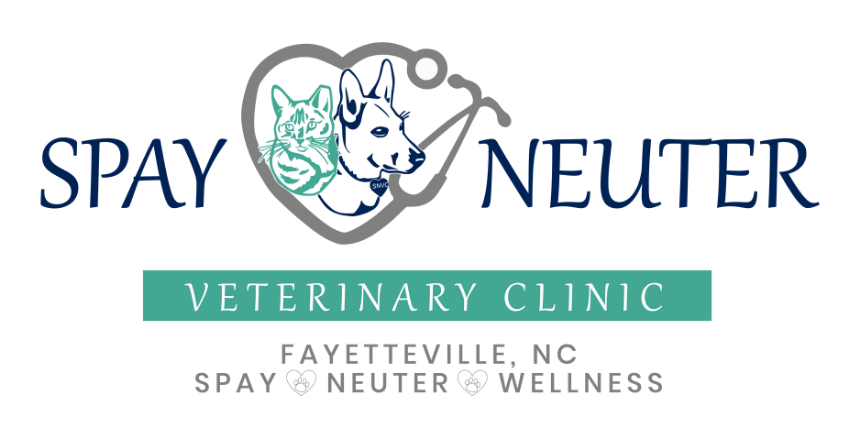Fayetteville, NC
Post-Operative Instructions
Please read and follow the post-operative instructions to lessen your pet’s risk of injury or infection. Your pet’s care after surgery is extremely important.

Post-Operative Instructions
Activity
Following surgery, keep your pet indoors in a warm, quiet room for 24 to 36 hours. The activity must be minimal for ten days after surgery, as running, jumping, and wrestling with other pets or children can cause damage to the incision. We recommend keeping your pet away from other animals to discourage playing or grooming which would irritate the incision. It is especially important to keep puppies or kittens away from females. Dogs should be walked on a leash, and cats kept strictly indoors.
Pain
Pets may experience some discomfort or soreness for 24 to 36 hours following surgery. Cats receive a post-operative pain injection that lasts 72 hours and will not be sent home with pain medications. Dogs will go home with an anti-inflammatory and pain medication from the Spay Neuter Clinic. Please follow the instructions given to you by the veterinarian on the packaging of the medication. The medication may start the night of surgery or may start the next day; this depends on the size of your dog. If you have any questions, please call the clinic immediately at (910) 400-7682
Urinating and Defecating
Your pet should still be urinating even if it is not eating. It is important to verify that your dog or cat is urinating. If you have more than one cat, you must watch the litter box to assure your cat is urinating. Anesthesia may cause diarrhea or constipation for a day or two, but if your pet does not defecate normally within two days, please contact us.
Incision
Check your pet’s incision twice daily for swelling, bleeding, discharge, or wound opening. Some of these symptoms are expected and are not cause for alarm, but if it seems excessive, please call the clinic for a recheck at (910) 400-7682 option 3. Keep your pet clean and dry for ten days after surgery. Do not wash the incision, as this may introduce infection. Bathing your pet is prohibited for at least 14 days after surgery. Never apply any topical ointments, creams, or bandages over the incision as they may cause the sutures to absorb prematurely, causing the incision to open. Band-Aids and bandages cause significant irritation to your pet’s skin and can lead to infection and serious complications.
Color
Check your pet’s gum color when you arrive home after the surgery. The gum color should be pink, and quickly return to that color after you press on the gum above the large canine tooth with your finger. Repeat this check throughout the evening after surgery. If your pet’s gums become pale and do not return to pink color during your check, please call the clinic at (910) 400-7682.
Stitches
Your pet has buried absorbable stitches, also known as sutures, under their outer layer of skin. There is no need to return for suture removal for most pets. Some pets receive staples in their skin, normally due to the incision being larger than normal or if they were pregnant. If your pet has staples, they will need to be removed here in 10-14 days after surgery.
Licking
Discourage your pet from licking or biting at the incision line. Male dogs especially are notorious for this. All dogs and female cats go home with an Elizabethan collar to prevent damage to the incision. The collar should stay on the pet for 7-10 days. No animals, cats or dogs, should be let outside off-leash with an Elizabethan collar on due to the risk of strangulation. If the Elizabethan collar is not used or instructions are not followed, fixing the damage a pet does to the incision will be done at the owner’s expense.
Fertile
Male cats and dogs remain fertile for 3-4 weeks after surgery and can still impregnate females. Please keep them confined. If females are in heat or coming into heat at the time of surgery, they may still show signs of being in heat for the next several weeks. This includes attracting males. We strongly recommend keeping your pets away from other animals after surgery to allow them time to heal. Puppies and kittens should be kept away from females as well to make sure they are not interfering with the healing.
